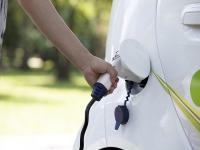Low prices to rev Asia automakers' e-vehicles biz

Cheap electric vehicles will help Asia's carmakers to carve out a greater market share, but this is currently not possible with costly lithium-ion batteries. Add to that the lack of charging infrastructure in many countries across the region mean manufacturers should stay cautious when producing electric cars.
Kevin See, senior analyst at Lux Research, said one of the main problems hindering the production of cheaper electric cars is the high cost of lithium-ion batteries--the key component that powers these vehicles. While the prices of these batteries will likely drop over time, it will be slow and would hinder carmakers from lowering their prices, he noted.
Agreeing, Peter Harrop, chairman of IDTechEx, said lower prices for electric vehicles will be key for the region's automakers. Being the first in the market to sell affordable, plug-in hybrid cars and pure electric ones with longer driving ranges are definitely compelling advantages, he said.

It will be some time before such a situation is realized though, with See cautioning carmakers here from expanding too quickly. This is because the market is still in a very early stage of maturity and adoption is very slow.
"Increasing the production capacity without enough demand can lead to overcapacity, which is a major financial burden for companies," he added
China Daily, citing a report by McKinsey & Co, reported in October that China's electric vehicles industry has contracted in the second quarter of this year. Only 235 such vehicles were sold in the world's largest auto market, which was a 31 percent drop from the 343 units sold in the first quarter.
Even top electric cars markets such as the United States and Japan registered only 7,931 and 4,240 units, respectively, it noted.
According to Harrop, Japan leads the electric vehicles market in Asia both in terms of technology and sales volume. See added Japan is most advanced in this field because of its "significant" expertise in lithium-ion batteries.
"While Korean companies such as LG Chem and Samsung SDI are very well-established lithium-ion manufacturers, much of their technologies are shipped overseas. For example, LG Chem's [battery is installed in] the Chevy Volt in the United States," See said.
Elsewhere, a Bernama report noted the Universiti Teknologi Malaysia (UTM) has developed a charging system that can charge different types of electric cars to run a distance of 160 kilometers for 8 ringgit (US$2.60). The system, called My Electrical Vehicle (MyEV), can fully charge an electric vehicle within 45 minutes, it added.
Advance with caution
South Korean carmaker Kia Motors is one that recognizes the potential of the market but is treading cautiously in launching its electric vehicles.
Michael Choo, general manager for global public relations at Kia Motors, said it launched its first full electric vehicle, Ray EV, earlier this year for the domestic market. The Ray EV is now sold to government agencies, but Kia plans to make it available to the general public in 2013, he added.
There are no plans to introduce the model to overseas markets though. Instead the next-generation Soul model will be its first globally-marketed electric car, which will be launched in 2014, Choo added.
In Asia, beyond Japan and China, Choo believes the uptake of electric vehicles in other markets will take some time as car buyers warm up to the idea that these cars are a viable option.
"The electric charging infrastructure is still quite weak, or even non-existent, in many Asian countries, and the consumer behaviors in terms of eco-conscious motoring still lags behind regions such as Western Europe and North America," he explained.